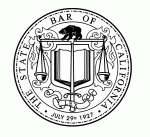Most persons are not aware that California has a procedure for dealing with claims by employees against employers or former employers for unpaid wages or other compensation. Such claims fall within the jurisdiction of the State Labor Commissioner and are administered by California’s Division of Labor Standards Enforcement (“DLSE”).
In order to file a claim, a person must be an employee, because the Labor Commissioner has no jurisdiction over persons who are independent contractors or employees of public agencies, such as federal, state, county or municipal employees. An employer may oppose a claim on the ground that the claimant is an independent contractor or public employee.
An employee alleging the non-payment of wages or other compensation by his or her employer can file a claim with an office of the DLSE to commence an investigation of the claim by the Labor Commissioner. The locations and telephone numbers of such offices can be found in the Government Listings section of the telephone book as “State of California, Industrial Relations Department, Labor Standards Enforcement, Wage Claims and Adjudication” or on line.
Claims must be filed within certain statutes of limitations, which vary between one and three years depending on the nature of the claim, so it is important for claims to be filed as soon as possible after non-payment.
After a claim is filed, it is reviewed by a deputy labor commissioner, who decides whether the claim should be referred to a formal hearing or dismissed.
In some cases, a pre-hearing conference may be noticed, requiring the claimant and the employer to appear at an informal conference to see if grounds exist to proceed with a formal hearing or to dismiss the matter and also to provide an opportunity for the matter to be resolved by a settlement.
If the matter is not resolved or dismissed after that conference, the claim proceeds to a formal hearing before a hearing officer. At such a hearing, each party has the right to be represented by an attorney or other party of his or her choosing, to present evidence, to call and cross-examine witnesses, to explain his or her evidence and, if necessary, to have a translator. Such hearings are somewhat informal and the Hearing Officer is not required to follow rules of evidence.
Within 15 days after the hearing, an Order, Decision or Award of the Labor Commissioner is filed with the DSLE and sent to the parties. Either party may appeal that decision to the Superior Court, which set the matter for a new hearing at which a judge will hear the case again with each party having a chance to present witnesses and evidence. The judge’s decision can be appealed under the general standards for appeals of civil actions.
The wage claim process provides a fair and relatively quick procedure for resolution of wage claims. Employers have an incentive to resolve meritorious claims because the Labor Code provides for substantial penalties for willful failure to pay wages.




